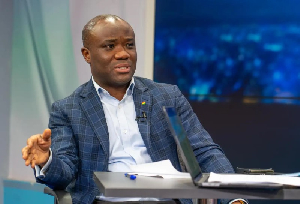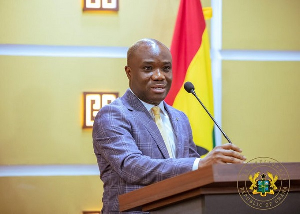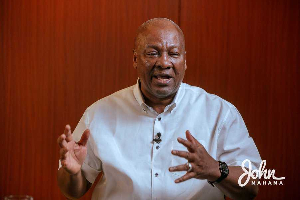In the upcoming December elections, Ghana stands at a pivotal crossroads, with the choice between continuity in hardship and crisis under the New Patriotic Party (NPP) and a fresh direction to reset, promised by the National Democratic Congress (NDC). Central to this decision is the comparison between John Dramani Mahama, the NDC candidate, and Dr. Mahamudu Bawumia of the NPP. Let us delve into why John Dramani Mahama emerges as the experienced and visionary leader poised to steer Ghana towards prosperity and stability.
Infrastructure Development and Economic Vision
Under John Dramani Mahama's leadership, Ghana witnessed unprecedented strides in infrastructure development. His tenure saw the realization of numerous projects that bolstered Ghana's connectivity and economic potential. Notable among these were the expansion of roads, airports, bridges, hospitals, and schools across the country. These infrastructural investments not only enhanced accessibility and quality of life but also stimulated economic activity, creating jobs and laying the foundation for sustainable growth.
Mahama's vision for Ghana goes beyond mere infrastructure; it encompasses a strategic plan for economic empowerment and national cohesion. His policies are aimed at fostering inclusive growth, where every Ghanaian has the opportunity to thrive. This vision is particularly resonant in a time when economic disparities are widening and exacerbated by global challenges.
Contrasting Leadership Styles: Consistency vs. Deceptive Politics
Dr. Mahamudu Bawumia's tenure has been marked by inconsistency and unfulfilled promises. His pledge to stabilize the exchange rate and arrest the depreciation of the cedi has regrettably faltered, with the cedi now significantly weakened compared to its standing under Mahama's administration. The introduction of burdensome taxes like the E-levy has added to the economic strain on Ghanaians, despite assurances of relief if elected president.
In stark contrast, Mahama's leadership is characterized by a steadfast commitment to transparent governance and accountability. His track record in mediating regional conflicts, such as the successful intervention in The Gambia, underscores his diplomatic acumen and dedication to regional stability.
Regional and Global Standing
Under Mahama, Ghana enjoyed a prestigious reputation within West Africa and beyond. His proactive approach in regional diplomacy strengthened Ghana's influence and leadership in ECOWAS, fostering cooperation and stability among member states. In contrast, recent years have seen Ghana's regional stature diminish, with critical withdrawals from ECOWAS reflecting a loss of confidence in current leadership how countries like Ghana under Nana Akufo-Addo have handled crisis.
Conclusion
As Ghana approaches a critical juncture in its democratic journey, the choice between John Dramani Mahama and the incumbent NPP leadership is clear. Mahama's experience, vision, and proven record of infrastructure development and regional leadership present a compelling case for his return to office. His policies are designed not only to address immediate challenges but also to lay a sustainable foundation for Ghana's future prosperity.
Elite voters and all Ghanaians alike must recognize the imperative of supporting a leader who values integrity, inclusivity, and progress. Electing John Dramani Mahama is not merely a choice for change; it is a decisive step towards restoring Ghana's global reputation, revitalizing its economy, and ensuring a brighter future for generations to come. It is time to reset Ghana and build the nation we aspire to—a Ghana that is free from corruption, economic mismanagement, and hardship.
In December, let us choose wisely for the sake of Ghana's future.
Abdul-Razak Yakubu (Former. Political Advisor, British High Commission-Accra)
Opinions of Friday, 12 July 2024
Columnist: Abdul-Razak Yakubu (ARY)



















